Here are the assets that Tehran possesses.
Here are the assets that Tehran possesses.
The initial round of negotiations between Iran and the United States in Muscat, the capital of Oman, has been described as positive by officials from both sides. Consequently, both parties are scheduled to continue these discussions in Muscat on the upcoming Saturday.
Following the announcement of the constructive nature of these talks, Iran’s foreign exchange markets exhibited a positive reaction. The value of the Iranian Rial, which had experienced significant declines in recent months, appreciated by 20 percent within three days. The Iranian stock market also responded favorably to this development, fostering a sense of optimism regarding the future trajectory of these negotiations. The designation of the talks as “positive and constructive” by both parties suggests a mutual avoidance of infringing upon the red lines of the opposing side, thereby facilitating the continuation of dialogue.
However, the fundamental question remains: what strategic assets does Iran possess in these negotiations, and what potential risks could jeopardize their progress?
Iran’s Strengths in the Negotiations:
1. The most crucial advantage for Iran in the current negotiations is the support of the Supreme Leader of the Islamic Revolution. While Ayatollah Khamenei had expressed strong opposition to negotiations with the United States in harsh statements just weeks prior, recent days have witnessed both him and individuals close to his office employing constructive language regarding these talks. 1 Notably absent have been any political attacks indicative of discord within the core and broader echelons of Iran’s leadership concerning the negotiations. Based on the Supreme Leader’s recent rhetoric, it can be inferred that his earlier dissenting remarks were primarily a political tactic to moderate the domestic political atmosphere within Iran and to strengthen the Iranian negotiating team. The Iranian negotiating team can leverage these prior statements to emphasize the existence of significant opposition in Tehran to the negotiations, thereby underscoring their lack of obligation to concede to all of the opposing side’s conditions.
The High Risk of Conflict with Iran Amidst Tariff Wars
2. Another key advantage for the Iranian side is the precarious state of the American and global financial markets. By announcing new tariffs against China and other nations, the United States has effectively initiated a global economic conflict. The severe repercussions of this action have been evident in the performance of American stock markets, the value of the dollar, and economic security within the US in recent weeks. Given that this move by the US administration will have lasting consequences on the American economy and could potentially lead to significant inflationary pressures, the US government has little choice but to attempt to control global oil prices.
Although the United States has substantially increased its oil production capacity in recent years, Middle Eastern oil and the status of OPEC still play a major role in determining oil prices. These prices, in turn, directly impact production and consumption costs in the US. In essence, the United States faces a dilemma: it can either engage in an economic war, focusing on neutralizing China’s influence, or confront the severe and unforeseen consequences of military engagement with Iran in the Middle East. This situation has led to two discernible perspectives within the White House regarding Iran. One view, represented by Vitkoff and Vance, posits that America’s economic interests are paramount in the current fragile environment and that the US should avoid new military and political expenditures that could unexpectedly inflate oil prices and jeopardize the security of energy transit routes across a significant portion of the globe. However, a second perspective, championed by Rubio, prioritizes US security interests in alignment with Israel’s priorities, thus advocating for efforts to undermine Iran rather than engage with it.
A Potential No-Loss Scenario
3. If the United States genuinely adheres to its stated principle of preventing Iran from developing nuclear weapons, Iran will essentially face no detriment. This is because Iran maintains that it has never pursued the acquisition of nuclear weapons and that its entire nuclear industry is geared towards peaceful applications necessary for domestic needs.
As indicated by various statements emanating from the White House, and as previously mentioned, two distinct factions exist within the US administration: one that advocates for the necessity of achieving a constructive engagement with Iran, and another that sees no reason for flexibility towards Iran and favors a hardline approach. The former group, arguing that insisting on the complete dismantling of Iran’s nuclear program will lead to the failure of negotiations, seeks to establish a rigorous verification mechanism – likely under US, rather than IAEA, management – to ensure Iran’s commitment to not developing nuclear weapons. However, the latter group believes that Iran should not possess the capability to enrich nuclear fuel. Otherwise, they contend, the country could, as in recent years, once again escalate the enrichment level to the threshold of bomb production.
Naturally, if the United States insists on the complete cessation of uranium enrichment in Iran in the coming week, this would signify crossing a red line for Iran. Iran views the cessation of enrichment as equivalent to the shutdown of its entire nuclear activities. However, if the policy direction shifts towards comprehensive monitoring of Iran’s nuclear activities, Iran is likely to be amenable to any form of cooperation.
Iran’s most significant advantage lies in the fact that increased oversight will not impose any specific limitations on its nuclear industry, as Iran fundamentally has no intention of militarizing its nuclear program and considers it economically and politically unviable to do so.
What can be inferred from the statements of Vitkoff – made three days prior in an interview with Fox News – is that the Trump administration is no longer pressing for the complete disarmament or destruction of Iran’s nuclear program. Instead, it seeks to impose restrictions on uranium enrichment and the weaponization aspects of Iran’s nuclear activities. If he adheres to these statements, it signifies a promising outlook for future negotiations. Accordingly, in the second round of negotiations, the Americans will likely focus on verification mechanisms for Iran’s nuclear program.
Mutual Need for a Limited Agreement
4. Given the intense pressure it feels on its economy, and considering the impending activation of the snapback mechanism against Iran this summer, Iran seeks to achieve a limited yet effective agreement. Iran aims for a specific agreement solely on the nuclear issue with the United States, thereby neutralizing the potential threats posed by the snapback mechanism. This approach ensures, firstly, that diverse and unrelated issues do not enter the negotiation process, safeguarding the talks from potential disruptions that could be instigated by Israel or other parties dissatisfied with these negotiations. Secondly, the Iranian negotiating team can demonstrate greater flexibility regarding its red lines and manage various political factions domestically.
Conversely, the United States also requires an agreement with Iran to, firstly, alleviate the fragile security situation in the Middle East and, secondly, by preventing a military escalation with serious unforeseen consequences, to gain the capacity to focus on other critical dossiers such as Ukraine and China. Considering this mutual need of both parties to reach an agreement – albeit a short-term one focused specifically on the nuclear issue – the likelihood of achieving a deal is increased.
Ambiguity Regarding the Depth and Scope of Iran’s Reaction
5. Another crucial advantage for Iran in these negotiations is the potentially high and unpredictable costs it could inflict on the United States. While Iran by no means seeks war in the region, if the US leaves no option other than military engagement, the extent of Iran’s response to actions by the US and Israel remains highly uncertain and could have diverse consequences for the region. Iran has described attacks on its sensitive sites as “gambling with American soldiers’ lives,” and its missile operations against Israel have demonstrated its ability to penetrate Israeli air defenses and inflict significant damage on Israeli facilities.
Furthermore, other forces within the Axis of Resistance, despite any perceived inactivity, possess the capacity for unforeseen actions.
This ambiguity regarding Iran’s ability to mount costly responses to the US constitutes one of Iran’s greatest advantages in the face of American threats. In other words, Iran has conveyed the message to the American side that a serious military conflict with Iran would mean the disruption of all US political projects in Asia – an outcome that Trump would never willingly accept.
The Precarious Situation
Despite all the positive points mentioned above, it must be emphasized that the situation is highly fragile, and the possibility of the negotiations failing at any moment exists. This is because, on the one hand, the Americans exhibit inconsistency in their positions, with both President Trump and his close associates expressing contradictory stances on numerous occasions. On the other hand, the rhetoric of US officials is often threatening, which could be perceived as humiliating by Iran. Iranian officials have demonstrated a high sensitivity towards what they consider arrogant and condescending language from the opposing side, and this alone could abruptly lead to the collapse of the negotiations. Furthermore, the likelihood of obstruction by Israel and the Zionist lobby in Washington is very high, as Israel believes it can inflict significant military damage on Iran and that the US should align itself with Tel Aviv in this endeavor.
Starting next week, the American side will likely demand limitations on Iran’s missile program (with the capability of carrying nuclear warheads) in addition to the nuclear program. This issue is a sensitive one for Iran, and significant reciprocal friction on this matter should be anticipated. However, given that this topic was also mentioned in the JCPOA (Joint Comprehensive Plan of Action), if the expectations and demands of the Americans on this issue are not excessive, there is a high possibility that Iran will agree to certain specific limitations on its nuclear program.







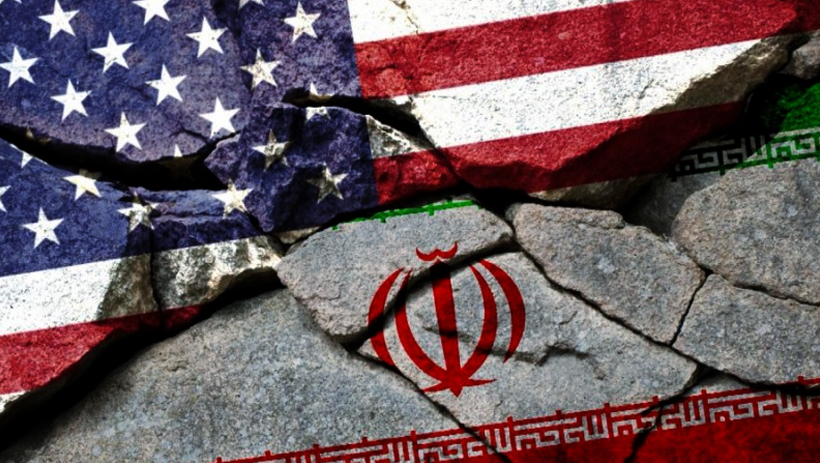

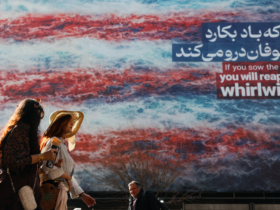
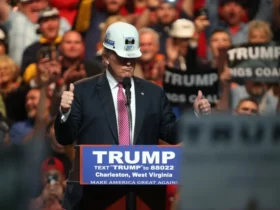
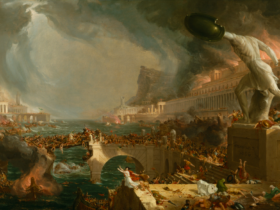
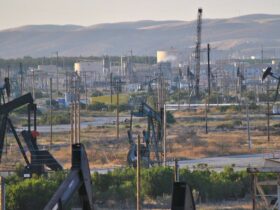
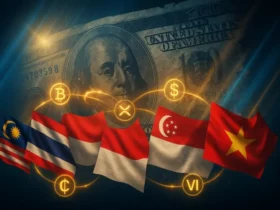
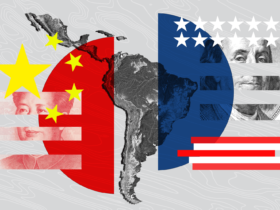


Leave a Reply